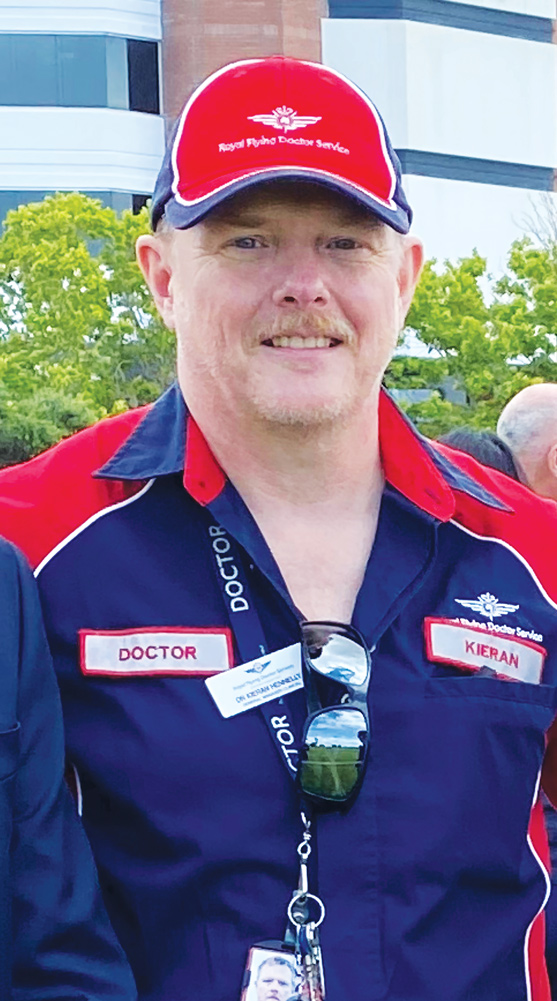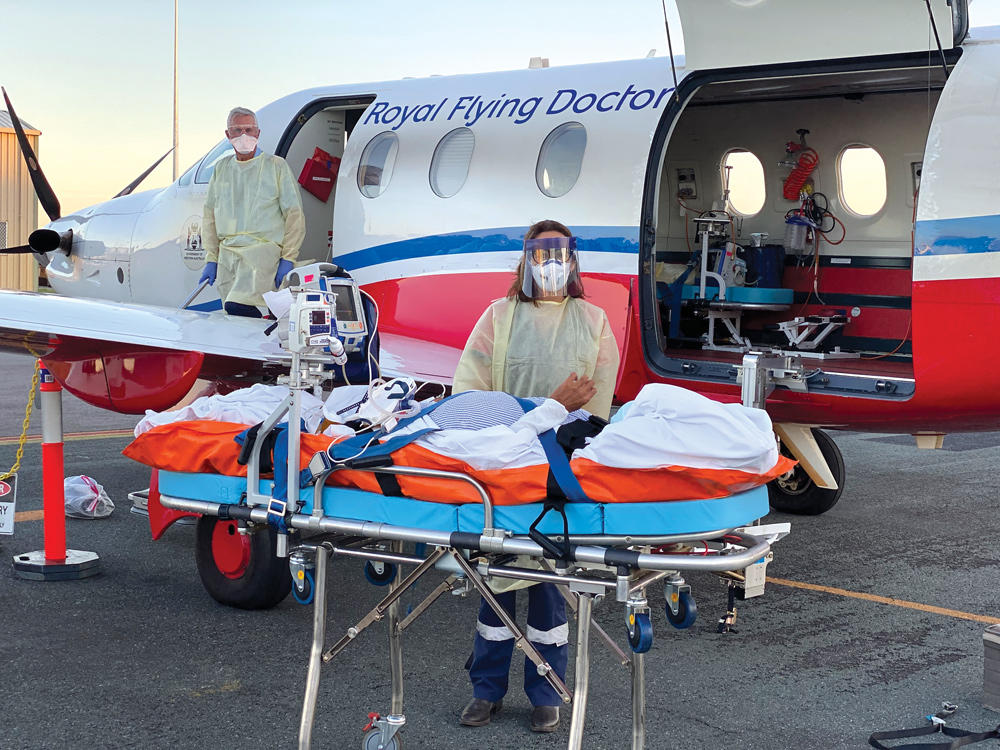 In COVID turbulent times, WA’s Royal Flying Doctor Service has spread its wings even further, as Dr Kieran Hennelly explains.
In COVID turbulent times, WA’s Royal Flying Doctor Service has spread its wings even further, as Dr Kieran Hennelly explains.
In Western Australia, we’ve had the advantage of time to ensure we are as prepared as we can be for community spread of COVID-19.

As well as observing the experiences in other States, the WA RFDS has learnt a lot from our own early experiences of COVID-19, having safely aero-medically retrieved 139 suspected or confirmed patients.
We have a team of dedicated clinicians who, alongside our pilots, engineers, logisticians and executives, have embraced agility and flexibility in the face of an ever-evolving landscape, and continue to embed those lessons into practice.
But the RFDS cannot do what we do on our own. COVID-19 has seen us collaborate with the WA health and emergency services network like never before, to actively plan and monitor any COVID-19 developments.
Prevention, preparation and planning have been key.
We have bolstered our frontline workforce by about 20%, boosted and diversified our aircraft fleet, integrated new technology to enhance infection control and decontamination processes, and ensured adequate PPE stocks, with our crews regularly refreshing infection control training.
Our objective is to provide uninterrupted services for the people of regional WA, and to protect the health of regional communities – some of whom are particularly vulnerable to the health impacts of COVID.
Drawing on the legacy of our founder, Reverend John Flynn, the RFDS – nearly 94 years after its conception – continues to build upon his traditions of innovation and providing a ‘mantle of safety’ to the people of remote and rural Australia.
Over the past 20 months, we have further expanded our fixed-wing fleet, both turboprop and the innovative Pilatus PC-24, a small jet designed with aeromedical retrieval in mind. It is a platform that allows us to work with our partners in health care to mitigate the tyranny of distance within WA, the largest health jurisdiction on the planet.

 Additionally, we are in the process of integrating two EC-145 helicopters to improve our flexibility and speed of response, to adapt to challenges known and those not yet encountered.
Additionally, we are in the process of integrating two EC-145 helicopters to improve our flexibility and speed of response, to adapt to challenges known and those not yet encountered.
Another key figure in our history was our Sugarbird Lady, Robin Miller, an RFDS pilot and nurse who worked tirelessly to deliver 37,000 Sabin polio vaccines to 45 remote communities across the Pilbara and Kimberley in the late 1960s.
Today, Robin’s legacy lives on in our COVID-19 remote vaccination program which, since its establishment in May 2021, has delivered more than 10,000 vaccines across the remote Kimberley, Pilbara, Goldfields and Midwest regions of WA.
Standing proudly outside our Jandakot base is a replica of Robin’s Mooney aircraft which she flew in to deliver the vaccines – a stark reminder of our strong roots in primary healthcare in remote and rural WA.
This combined with our relationships with our health partners and capabilities as both a transport organisation and a health service have enabled us to help with novel activities – swabbing sailors on offshore vessels, moving healthcare workers and pathology samples around the State and delivering COVID-19 vaccines to the most remote parts of WA.
By doing so, everyone who lives, works and travels in our State can feel safe knowing that they are not forgotten.
This year will likely bring great challenge to many of us in health care. Some of those will be anticipated, some not.
We can take comfort in the fundamental simplicities of our role of compassion, inclusion and a determination to do whatever it takes to mitigate suffering and provide people with assurance that they are cared for in the year ahead.
ED: Dr Kieran Hennelly is Clinical General Manager with RFDS Western Operations.

